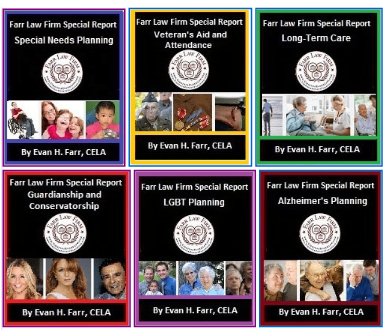|
New Alzheimer’s Risk Factors Presented at Alzheimer's Association International Conference
If you cannot view the image below, please read the article on our blog.

Image from 2015 AAIC- alzjourney.com
Q. My grandmother, Pearl, and her three siblings, Rebecca, Helene, and Morris, all died from Alzheimer’s. I heard that a family history of Alzheimer’s is a major risk factor for the disease. Do you know what some of the other risk factors are, and are there any preventative measures I could take? Thanks for your help!
A. As you mentioned, a family history of Alzheimer's is one of the major risk factors for the disease. However, this past week, at the 2015 Alzheimer's Association International Conference (AAIC) in Washington, DC, researchers from around the world shared study results that confirmed other risk factors and preventative measures. Below are some of the highlights from this year’s conference:
Prevalence of Alzheimer’s
- It is estimated that by 2050, around 13.8 million older adults in the US will be living with Alzheimer's.
-
Worldwide, around 36 million people are living with Alzheimer's; in the US alone, around 5.3 million people are living with the disease - of whom 5.1 million are aged 65 and older.
-
Over the next 10 years, the number of seniors with the condition is expected to rise to 7.1 million.
-
This year, it is estimated that around 700,000 people in the US aged 65 and older will die from Alzheimer's, making it the 6th leading cause of death in the country - the only cause of death in the top 10 for which there is no way to prevent, slow, or cure it.
Risk Factors
According to the researchers at AAIC, if we are aware of what triggers the condition, more can be done to reduce the risk of developing it. Below are risk factors discussed at the conference:
-
Age is the most well-established risk factor for Alzheimer's, as the vast majority of individuals with the disease are age 65 and older. The risk for Alzheimer's doubles every 5 years after the age of 65, while after the age of 85, the risk rises to almost 50%.
-
A family history of Alzheimer's and the presence of certain genes, are also considered to be risk factors for the disease.
-
Physical activity in early and mid-adulthood may be an important factor for healthy cognitive aging. In fact, a study at the Northern California Institute of Research and Education (NCIRE) in San Francisco involving more than 3,200 adults aged 18-30 who were followed-up for 25 years, revealed that subjects who watched at least 4 hours of TV daily or who had low physical activity levels had poorer memory, executive function, and processing speed in cognitive tests taken in mid-life. Based on these findings, researchers believe physical activity in early and mid-adulthood may be an important factor for healthy cognitive aging. According to researchers, "Sedentary behaviors, like TV viewing, could be especially relevant for future generations of adults due to the growing use of screen-based technologies. Because research indicates that Alzheimer's and other dementias develop over several decades, increasing physical activity and reducing sedentary behavior beginning in early adulthood may have a significant public health impact."
-
Individuals with diabetes may be at greater risk for Alzheimer's and other dementias. The Kaiser Permanente Division of Research in Oakland, CA analyzed the health history of 490,344 individuals age 60 and older who had no history of dementia. Of these participants, 334 had type 1 diabetes. The incidence of dementia among the seniors with type 1 diabetes was assessed over 12 years of follow-up, and was compared with dementia incidence among participants with type 2 diabetes, and those without diabetes. Compared with participants without type 1 diabetes, adults with this condition were found to be at 83% higher risk for dementia.
-
Cognitive ability in childhood and job complexity in adulthood may play a role. In one study that was presented, Serhiy Dekhtyar, PhD, of the Karolinska Institute in Sweden, and colleagues gathered data on the childhood cognitive ability - as determined by school grades at the age of 10. The incidence of dementia among the 7,574 adult participants was assessed via 20 years of follow-up, and data on their educational attainment and occupational complexity was also gathered. During follow-up, 950 cases of dementia occurred. The results of the analysis revealed that participants who fell into the lowest 20% of childhood school grades were at 21% greater dementia risk, compared with those who had higher school grades, regardless of their occupational complexity in adulthood. Higher childhood school grades alongside greater job complexity - as determined by high complexity with data and numbers - were found to be at 39% reduced risk for dementia, while a 23% lower risk was found among individuals with higher job complexity alone. These findings, the team says, suggest that cognitive performance in childhood and early adulthood is important for "cognitive reserve" - the ability for the brain to recover quickly from any damage sustained, preserving memory and thinking later in life.
-
Loneliness in older age is a well-known risk factor for depression, and it could it also be a risk factor for Alzheimer's. Dr. Nancy J. Donovan, of Brigham and Women's Hospital and Harvard Medical School in Boston, MA, and colleagues suggest so. The team presented a study at the AAIC in which they assessed data from more than 8,300 adults aged 65 and older who were part of the US Health and Retirement Study from 1998-2010. Every 2 years, the researchers collected data on participants' loneliness, depression, health status, cognitive function and memory and social network. At the study baseline, 17% of participants reported loneliness, with around half reporting depression. Over a 12-year follow-up period, the team found that the loneliest subjects experienced cognitive decline around 20% faster than participants who did not report loneliness. In addition, participants who reported depression at study baseline also experienced faster cognitive decline.
Early Detection is Key
Research suggests that the process of Alzheimer's disease begins more than a decade before clinical symptoms appear. Therefore, early detection may have a major impact on the course of the disease, and in successfully treating symptoms.
At present, there is no single test to diagnose Alzheimer’s. Doctors currently rely on medical evaluation, including mental status testing and physical and neurological examinations, in order to make a diagnosis. Additional research presented at the AAIC has offered new insight into potential ways to predict the risk for dementia, including detection through a saliva test or cerebrospinal fluid. These new ways to detect Alzheimer’s are bringing us closer to early diagnostic techniques.
Medicaid Planning for Alzheimer’s and Other Types of Dementia
Alzheimer’s is the biggest health and social care challenge of our generation, and a diagnosis of the disease is life-changing. When it comes to planning for long-term care needs, generally, the earlier someone with dementia plans, the better. But it is never too late to begin the process of Long-term Care Planning, also called Lifecare Planning and Medicaid Asset Protection Planning.
Medicaid planning can be initiated by an adult child acting as agent under a properly-drafted Power of Attorney, even if you are already in a nursing home or receiving other long-term care.
Medicaid Asset Protection
People with Alzheimer’s live on average four to eight years after they’re diagnosed, but some may live 20 years beyond their initial diagnosis. Do you have a loved one who is suffering from Alzheimer’s or any other type of dementia? Persons with dementia and their families face special legal and financial needs. At The Law Firm of Evan H. Farr, P.C., we are dedicated to easing the financial and emotional burden on those suffering from dementia and their loved ones. We help protect the family’s hard-earned assets while maintaining your loved one’s comfort, dignity, and quality of life by ensuring eligibility for critical government benefits such as Medicaid and Veterans Aid and Attendance. Please call us as soon as possible to make an appointment for a no-cost consultation:
Fairfax Elder Law: 703-691-1888
Fredericksburg Elder Law: 540-479-1435
Rockville Elder Law: 301-519-8041
DC Elder Law: 202-587-2797
----------
Critter Corner: What is the NOTICE Act?

Dear Baxter,
I read that the Notice of Observation Treatment and Implication for Care Eligibility (NOTICE) Act passed the US Senate earlier this week. Can you explain what observation care means, and what this new law would entail?
Thanks,
Inda Hospitalle
----
Dear Inda,
Observation care is a hospital classification used when patients are not well enough to go home but not sick enough to be admitted to the hospital. In many situations, if patients are being wheeled into a hospital bed and getting treatment, then they assume that they have been admitted, but this is not always the case. It's a distinction that's easy to miss until patients are hit with big medical bills after a short stay. Also, a 3-day hospital admission is required for Medicare and private insurance to cover short-term rehab that might take place in a nursing home after discharge from the hospital.
The Senate approved legislation on Monday, July 27, 2015, requiring hospitals across the nation to tell Medicare patients when they receive observation care, but have not been admitted to the hospital. The law would require hospitals to provide written notification to patients 24 hours after receiving observation care, explaining that they have not been admitted to the hospital, the reasons why, and the potential financial implications.
A handful of states already require observation care notices, including New York, Connecticut, Maryland, Pennsylvania, and Virginia. In 2013, Medicare officials attempted to control the use of observation care by issuing the so-called "two-midnight rule," which would require hospitals to admit patients who doctors expect to stay at least two midnights. But Congress delayed its enforcement after hospitals said the rule was confusing and arbitrary.
Since then, the federal government has been "pushing very hard" to encourage hospitals to educate patients about observation care. The NOTICE ACT is expected to be signed into a law by President Obama, and hospitals will have to comply with the NOTICE Act 12 months after it becomes law.
Hope this is helpful. You can read the text of the NOTICE Act here.
Doggy kisses,
Baxter
--------
Sign up for our FREE Special Reports and get the answers to your burning questions! Just click on a cover below!

|
Nominate our blog |
If you enjoy our articles, please consider nominating our blog in the "2015 Best Legal Blog Contest." It takes just two minutes. Thanks in advance!
|
| |
| Special Offer |
|
We’re Giving Away My Best-Selling Books – Click Here to Find out Why and to Get Your Free Copies
|
| |
| Find Us |
|
|
| Upcoming Events |
|
Our upcoming Living Trust Plus: How to Protect Your Assets from the Expenses of Probate and Long Term Care seminars are on August 1 or September 5 in Fairfax.
----------
|
Article Reprint Authorization
|
We invite you to reprint our articles to bring helpful content to your readers, with the following guidelines:
-The article is to be printed in its entirety;
-Additions, deletions, or changes in the text, title or illustrations may not be made;
-Credit is given to The Law Firm of Evan H. Farr, P.C., as the original source.
Example:
Source: Reprinted from The Law Firm of Evan H. Farr, P.C. Newsletter (www.FarrLawFirm.com).
|
|
Mailing Address
|
Fairfax:
10640 Main Street
Suite 200
Fairfax, VA 22030
703-691-1888
Fredericksburg:
511 Westwood Office Park
Fredericksburg, VA 22401
540-479-1435
Rockville, MD:
1 Research Court
Suite 450
Rockville MD 20850
301-519-8041
Washington, DC:
1425 K Street, NW
Suite 350
Washington, DC 20005
202-587-2797
|
|












